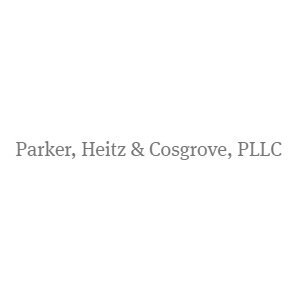Best Foreclosure Lawyers in Billings
Share your needs with us, get contacted by law firms.
Free. Takes 2 min.
Free Guide to Hiring a Real Estate Lawyer
List of the best lawyers in Billings, United States
About Foreclosure Law in Billings, United States
Foreclosure law in Billings, and broadly the United States, governs situations where a homeowner fails to make mortgage payments, and as such, the lender seeks to recover the balance of the loan by forcing the sale of the asset used as the collateral for the loan, the house. Foreclosures can be a challenging area to navigate, given the complex web of federal, state, and local laws that regulate them. In Montana, the most prevalent process is a non-judicial foreclosure. That means the foreclosure occurs outside of the court system, usually based on terms written into the original loan agreement.
Why You May Need a Lawyer
There are several situations where you may need a lawyer when dealing with foreclosure. Situations may include, but are not limited to identifying foreclosure avoidance strategies, helping negotiate with the lender to modify the terms of your loan, protecting your rights during the foreclosure process, and potentially representing you during any hearings or mediations. An experienced Real Estate lawyer can provide valuable guidance and representation during this stressful time to ensure the best possible outcome for you and your family.
Local Laws Overview
In Billings, Montana, the law provides a 120-day pre-foreclosure notice. Once the notice is received, the borrower has the period to reinstate the loan and stop the foreclosure process. If the borrower doesn't manage to do so, a Notice of Trustee Sale will be filed, and the property will be sold at a public auction. Following the sale, the borrower has a 15-day right of redemption, meaning a chance to buy back the property. Knowledge of these local aspects can help homeowners prepare and understand their options.
Frequently Asked Questions
What is a statement of default?
This is a document that a lender files to start the non-judicial foreclosure process, indicating that the borrower is behind on their mortgage payments.
What happens after the pre-foreclosure period?
The property is sold at a foreclosure sale. The highest bidder becomes the new owner of the property.
Can Foreclosure be stopped?
Yes, foreclosure can be halted typically by paying the overdue amounts, filing for bankruptcy, or by legal action challenging the foreclosure's validity.
What is 'right of redemption'?
This is a borrower's right to reclaim their property following the foreclosure sale by paying the buyer the amount they paid at the auction, plus interest within a specific time frame.
Does Foreclosure mean I lose my house?
In most instances, yes. However, by proactively seeking legal help or working with your lender, there might be ways to keep your property.
Additional Resources
For further information, homeowners can refer to Montana Legal Services Association (MLSA) or the US Department of Housing and Urban Development (HUD) for resources related to foreclosure. The Consumer Financial Protection Bureau also provides resources on foreclosure and offers advice for homeowners facing this process.
Next Steps
If you need legal assistance with foreclosure, consider consulting with an experienced foreclosure or real estate lawyer in your area. A lawyer can provide clear insight into your rights as a homeowner, guidance on the local laws, and assist you in potentially saving your property from foreclosure. Remember, the sooner you seek help, the more options you might have available to avoid foreclosure.
Lawzana helps you find the best lawyers and law firms in Billings through a curated and pre-screened list of qualified legal professionals. Our platform offers rankings and detailed profiles of attorneys and law firms, allowing you to compare based on practice areas, including Foreclosure, experience, and client feedback.
Each profile includes a description of the firm's areas of practice, client reviews, team members and partners, year of establishment, spoken languages, office locations, contact information, social media presence, and any published articles or resources. Most firms on our platform speak English and are experienced in both local and international legal matters.
Get a quote from top-rated law firms in Billings, United States — quickly, securely, and without unnecessary hassle.
Disclaimer:
The information provided on this page is for general informational purposes only and does not constitute legal advice. While we strive to ensure the accuracy and relevance of the content, legal information may change over time, and interpretations of the law can vary. You should always consult with a qualified legal professional for advice specific to your situation.
We disclaim all liability for actions taken or not taken based on the content of this page. If you believe any information is incorrect or outdated, please contact us, and we will review and update it where appropriate.








